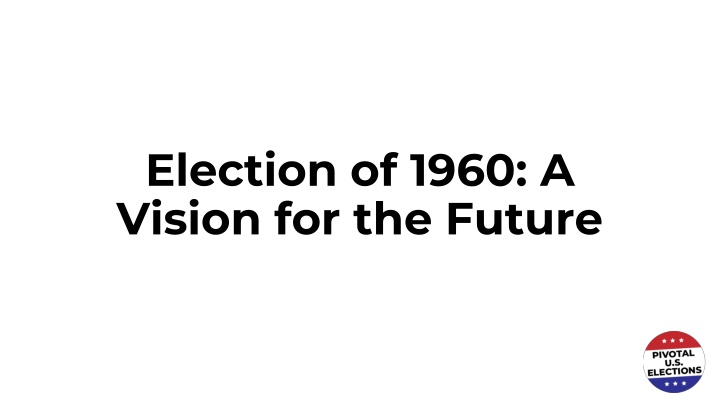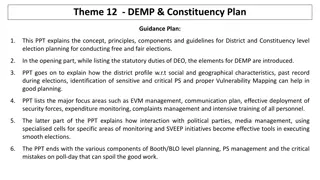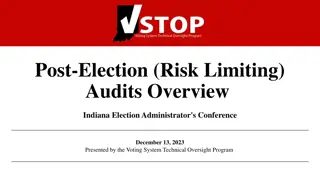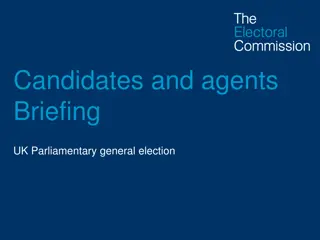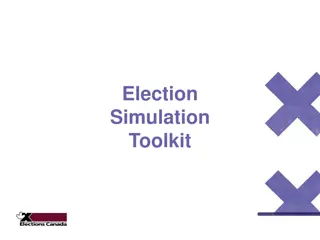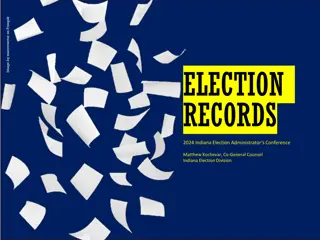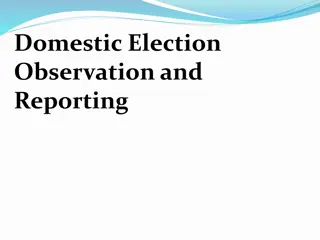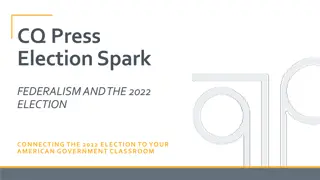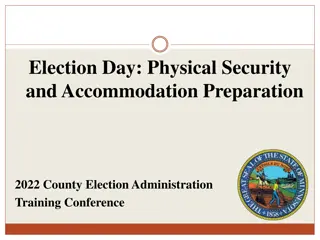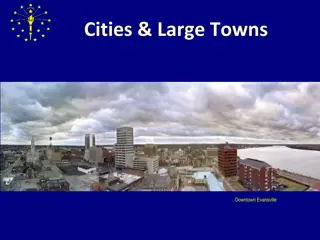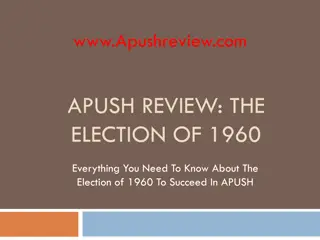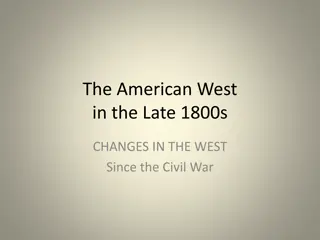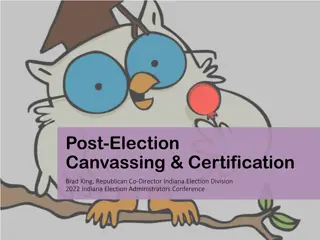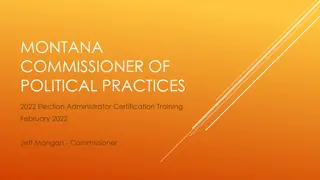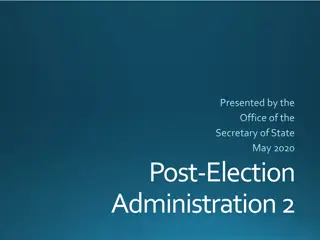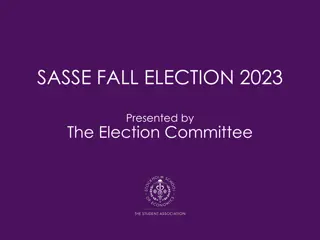The Election of 1960: A Reflection on Americans' Views
The election of 1960 served as a barometer of Americans' perspectives on the Civil Rights Movement and the Cold War. It highlighted the issues of civil rights and foreign affairs, with escalating tensions addressed by candidates Kennedy and Nixon. Despite Kennedy's optimistic idealism and victory, challenges from political opponents and civil rights leaders persisted during his presidency until his tragic assassination in 1963.
Uploaded on Sep 29, 2024 | 4 Views
Download Presentation

Please find below an Image/Link to download the presentation.
The content on the website is provided AS IS for your information and personal use only. It may not be sold, licensed, or shared on other websites without obtaining consent from the author.If you encounter any issues during the download, it is possible that the publisher has removed the file from their server.
You are allowed to download the files provided on this website for personal or commercial use, subject to the condition that they are used lawfully. All files are the property of their respective owners.
The content on the website is provided AS IS for your information and personal use only. It may not be sold, licensed, or shared on other websites without obtaining consent from the author.
E N D
Presentation Transcript
Election of 1960: A Vision for the Future
Essential Question To what extent can the election of 1960 be seen as a barometer of Americans views about the Civil Rights Movement and the Cold War, both during the election and in the years immediately following?
Key Ideas The election of 1960 focused on two main issues: civil rights and foreign affairs. Escalating tensions related to desegregation were addressed by both candidates. Anticommunism remained a guiding principle behind nearly all U.S. foreign policy, but the specifics of each candidate s platform varied. Candidates image and character were also on the ballot. Pitting a seasoned politician against a well-connected newcomer, the election resulted in a youthful, articulate John F. Kennedy winning the presidency, giving many Americans a sense of optimism. During his presidency, Kennedy s idealism did have limits as he worked to prove he was tough on communism and to avoid alienating conservative white voters. Up to the time of his assassination on November 22, 1963, he faced consistent challenges from political opponents and frustrated civil rights leaders.
Candidates and Outcome Kennedy 303 Nixon 219 Byrd 15 John F. Kennedy (Democrat) Richard Nixon (Republican) Harry F. Byrd (Not a Candidate)
Warm-Up Excerpt from the 1960 Democratic Party Platform Democratic National Convention July 11, 1960
Excerpt from the 1960 Democratic Party Platform Democratic National Convention July 11, 1960 In 1796, in America's first contested national election, our Party, under the leadership of Thomas Jefferson, campaigned on the principles of "The Rights of Man." . In 1960, "The Rights of Man" are still the issue. It is our continuing responsibility to provide an effective instrument of political action for every American who seeks to strengthen these rights-everywhere here in America, and everywhere in our 20th Century world. The common danger of mankind is war and the threat of war. Today, three billion human beings live in fear that some rash act or blunder may plunge us all into a nuclear holocaust which will leave only ruined cities, blasted homes, and a poisoned earth and sky. Our objective, however, is not the right to coexist in armed camps on the same planet with totalitarian ideologies; it is the creation of an enduring peace in which the universal values of human dignity, truth, and justice under law are finally secured for all men everywhere on earth. If America is to work effectively for such a peace, we must first restore our national strength-military, political, economic, and moral. . Democratic National Convention (Los Angeles, California). Platform of the Democratic Party, 1960. From The American Presidency Project. https://www.presidency.ucsb.edu/documents/1960-democratic-party-platform.
Excerpt from the 1960 Democratic Party Platform Democratic National Convention July 11, 1960 Civil Rights We shall also seek to create an affirmative new atmosphere in which to deal with racial divisions and inequalities which threaten both the integrity of our democratic faith and the proposition on which our nation was founded that all men are created equal. It is our faith in human dignity that distinguishes our open free society from the closed totalitarian society of the Communists. . In every city and state in greater or lesser degree there is discrimination based on color, race, religion, or national origin. If discrimination in voting, education, the administration of justice or segregated lunch counters are the issues in one area, discrimination in housing and employment may be pressing questions elsewhere. The peaceful demonstrations for first-class citizenship which have recently taken place in many parts of this country are a signal to all of us to make good at long last the guarantees of our Constitution. The time has come to assure equal access for all Americans to all areas of community life, including voting booths, schoolrooms, jobs, housing, and public facilities. . Democratic National Convention (Los Angeles, California). Platform of the Democratic Party, 1960. From The American Presidency Project. https://www.presidency.ucsb.edu/documents/1960-democratic-party-platform.
Excerpt from the 1960 Democratic Party Platform Democratic National Convention July 11, 1960 We will support whatever action is necessary to eliminate literacy tests and the payment of poll taxes as requirements for voting. A new Democratic Administration will also use its full powers legal and moral to ensure the beginning of good-faith compliance with the Constitutional requirement that racial discrimination be ended in public education Democratic National Convention (Los Angeles, California). Platform of the Democratic Party, 1960. From The American Presidency Project. https://www.presidency.ucsb.edu/documents/1960-democratic-party-platform.
